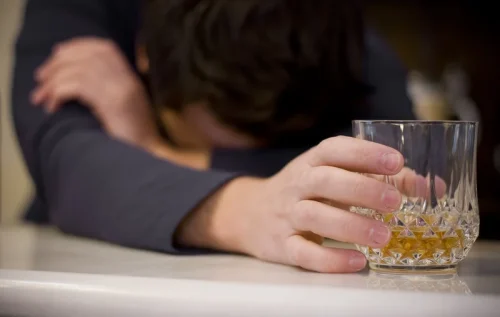Myths & Truths About Addiction Recovery: Breaking the Stigma of Addiction

In reality, treatment motivated by shame often fails to endure while stigma can have a significant impact on one’s mental health. It lowers self-esteem, creates guilt, and leads to further substance abuse in order to mute these bad feelings. Addiction is not a moral failing, but a chronic disease that affects the brain and behavior. It is characterized by compulsive drug or alcohol use despite negative consequences.

Individualized, evidence based treatment, to fit your needs.
- From understanding the prevalence of substance use disorder to emphasizing the importance of addressing mental health issues through dual diagnosis, we will delve into the realities of addiction.
- But the truth is, withdrawing from an addictive substance is only the first step in the process.
- Prescription medications have the potential to be as addictive and deadly as illicit drugs.
- If you are looking for drug and alcohol detox, inpatient rehab, or ongoing support for your recovery, our addiction treatment center can offer you the help and guidance you need.
- At Gateway Foundation, we prefer to use the term “medically supervised withdrawal.” “Detox” implies that once the substance you are addicted to leaves your body, all will be well.
Together, we can build a society that supports people with addiction by promoting compassion instead of judgment. Seeking treatment for addiction early and tailoring it to each individual is necessary for recovery. Addiction is a complicated disease and is often not understood in the medical community, resulting in stigma and shame. Addiction shouldn’t be seen as a choice, but as a result of various factors. Willpower alone can’t overcome addiction, and it can affect anyone no matter their age, income, ethnicity, religion, family, or profession. Alcoholism is treatable through evidence-based interventions such as therapy and support groups.

#3. People usually get addicted to one type of substance.

In modern rehab centers, medication-assisted treatment is a common practice. To some, using prescription medication during addiction treatment might seem counterintuitive. But there are marked differences between the prescription medicine in rehab and the drugs a person may be addicted to.
- It is important to challenge the notion that addiction only impacts certain types of people, as it perpetuates stigma and hinders efforts to provide support and resources for those in need.
- Misuse or overuse of a prescribed medication can lead to dependency or addiction.
- Research has shown that addiction is rooted in changes in the brain’s reward system, leading to a loss of control over substance use.
- This can be harmful as it may discourage individuals from seeking treatment if they don’t believe in the prescribed approach.
Discover shocking heroin fast facts! Learn about effects, addiction signs, and treatment options in society.
It’s important to understand that addiction is not a choice or a character flaw, but rather a chronic disease that alters brain chemistry and function. Recognizing addiction as a brain disorder is crucial for reducing stigma and promoting effective treatment approaches that address the underlying causes, rather than simply blaming the individual. Polysubstance abuse appears to be particularly common among males, those who https://ecosoberhouse.com/ begin using drugs at an early age, and adolescents and young adults. The common belief has been that those who are addicted to drugs or alcohol simply aren’t strong enough to overcome it. Some people believe that there is something inherently wrong with a person who struggles with addiction. By debunking the myth that recovery is a quick process, we can promote a more realistic understanding of addiction and recovery.
- It’s just another way society blames people who are only trying to help get someone well.
- There is an unfortunate stereotype that a person who becomes addicted to alcohol or drugs is a “bad” person.
- We will also explore the harmful effects of prescription drugs, debunk stereotypes surrounding addiction and physical appearance, and shed light on the seriousness of alcoholism.
- Myths and misunderstandings perpetuate the hidden nature of addiction, making it hard for individuals to receive help or talk about its effects.
Addiction: A Complex Disease that Requires Understanding and Support
- This lack of visibility feeds myths and misunderstandings about addiction.
- It does not mean failure, but rather serves as an opportunity to adjust and grow in the treatment plan.
- Still, the media perpetuates the myth that there is a right way and a wrong way to recover, and that treatment that is luxurious or comfortable is inherently bad.
- Over time, the brain changes and adapts to the substance, making it difficult to quit without help.
- The stigma needs to be challenged by promoting kindness and creating comfortable spaces for discussions.
- If you display symptoms such as intense marijuana cravings, being unable to reduce your use, or missing work because of marijuana use, you may have an addiction to marijuana.
You might not want to accept a friend’s invitation to head out to a club, or you might skip going to a house party where you know drugs will be present. You may also find it’s beneficial to avoid certain friends or groups of people if they played a role in encouraging you to use. The idea of putting your life on hold to enter a treatment program may seem overwhelming.
Addiction Affects Only Weak People
This is a critical insight that America misses – “to end the epidemic of deaths of despair, we need to target the sources of the despair.” But Angell too embodies many of the myths of addiction. She considers drug use itself – as universal as it is – to be the result of despair (Myth I). This is no truer than saying drinking alcohol, shopping, playing video games or using mobile phones, sex, or love are signs of despair. Still, the media perpetuates the myth that there is a right way and a wrong way to recover, and that treatment that is luxurious or comfortable is inherently bad. Obviously, a relapse is extremely difficult to deal with, but it’s not the end of the world.
Marijuana may also be viewed as a non-addictive drug, but it is possible to develop a dependence on this substance. The National Institute on Drug Abuse reports that as many as 30% of people who use marijuana myths about addiction and recovery will become addicted. If you display symptoms such as intense marijuana cravings, being unable to reduce your use, or missing work because of marijuana use, you may have an addiction to marijuana.




